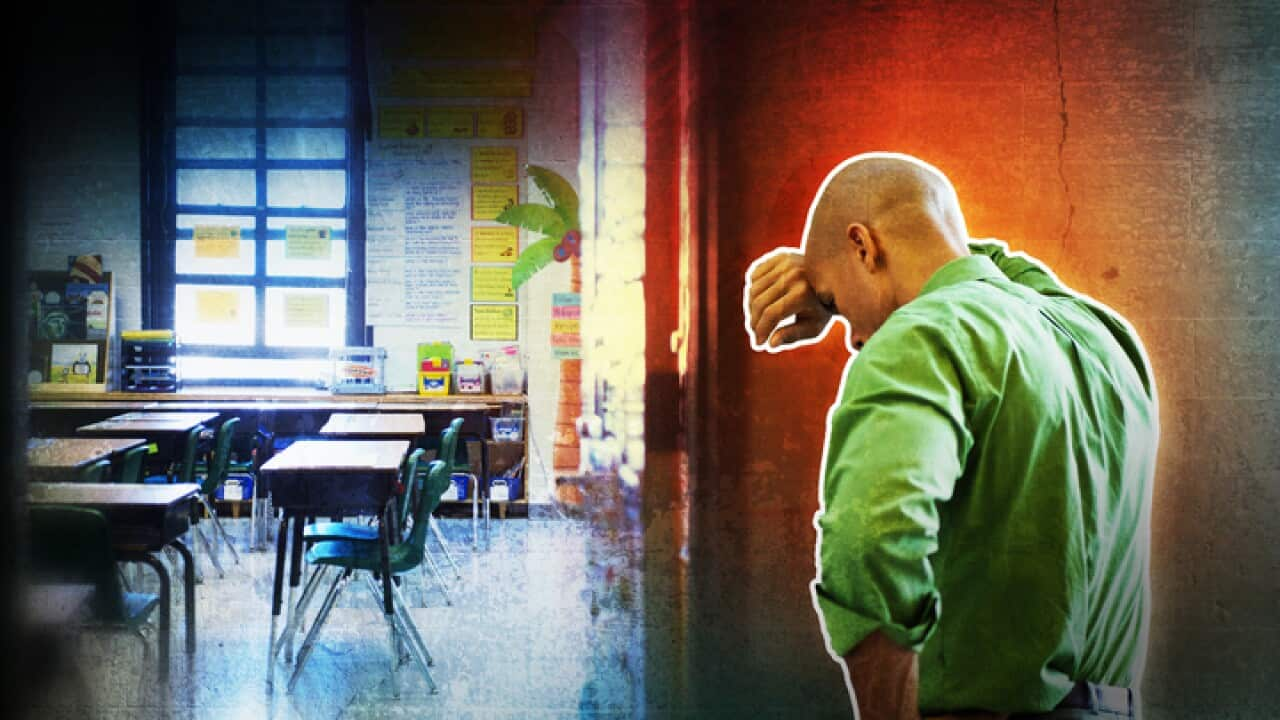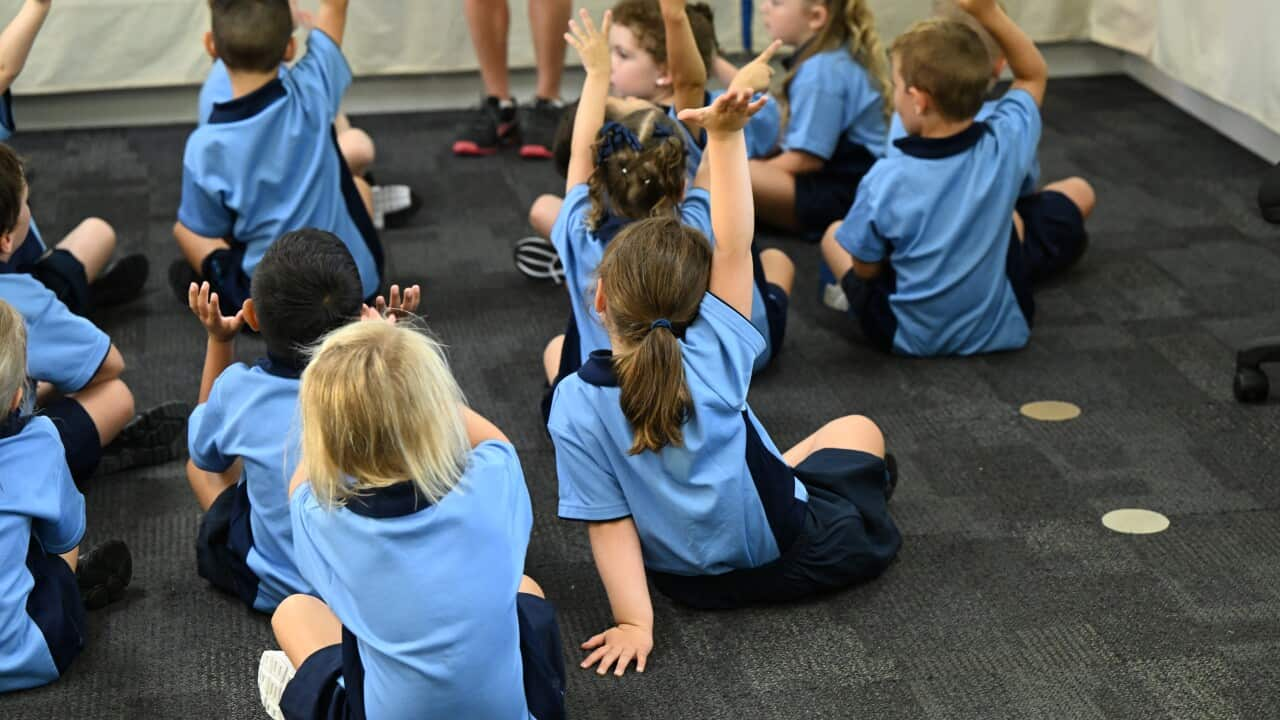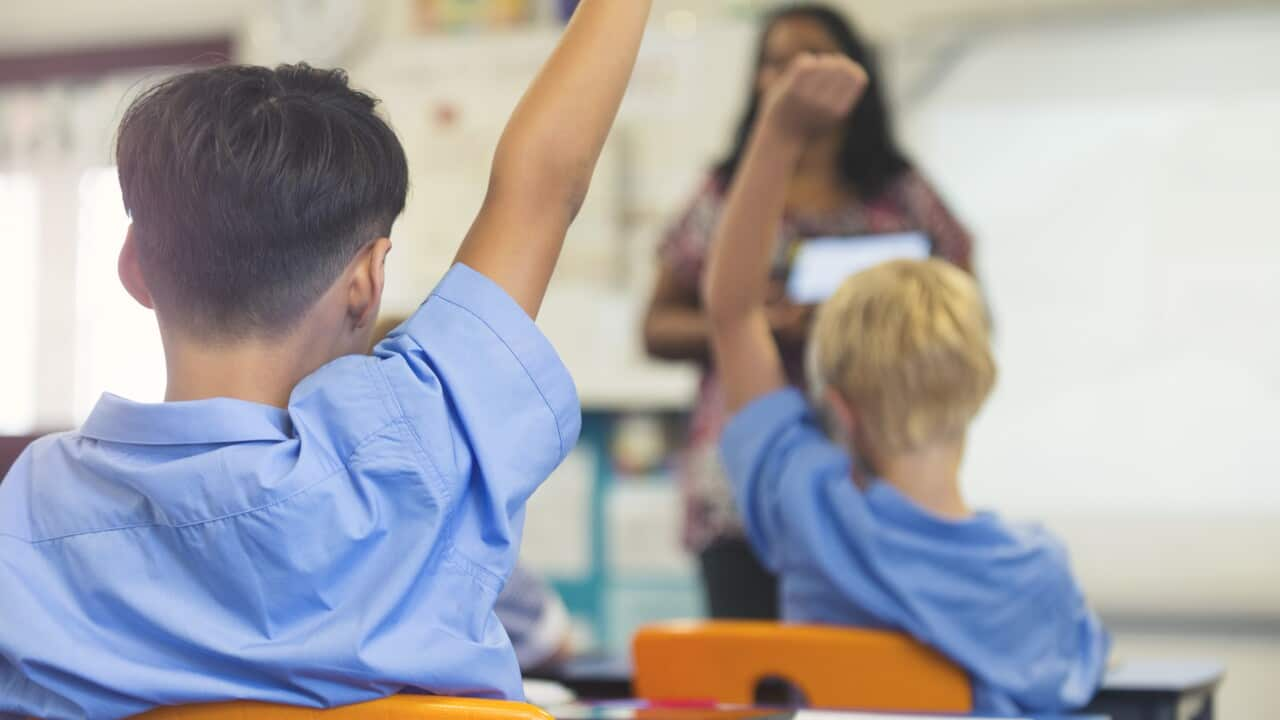Key Points
- A survey of more than 2,000 Australian principals has uncovered alarming rates of aggression and bullying in schools.
- Around half of those surveyed have considered leaving the profession.
- Others, however, have reported high levels of job satisfaction despite the challenges.
Principals are being bitten, physically assaulted, and witnessing violence in Australian schools at record levels, according to research by the Australian Catholic University (ACU).
More than 1,000 principals surveyed reported being a victim or witness of physical abuse in 2024, and a similar number were at risk of self-harm, occupational health problems or serious impact to their quality of life.
Associate professor Paul Kidson from ACU was an investigator for the Principal Occupational Health and Wellbeing survey 2024, which flagged the highest level of school-based violence since the report began in 2011.

Source: SBS News
"One principal showed me bite marks on their hand from a junior primary student, another had to step into the middle of a scuffle between students out in the yard.
"Some people would say: 'Well, that's not really significant.' And to which I would respond, you probably don't see that in your own workplace."
Almost all reports of physical assault in schools were caused by students.
Schools taking legal action to protect staff
The survey also reported high levels of parents and caregivers threatening and bullying principals.
Bullying, conflicts and quarrels, and gossip and slander were at their highest points on record, the majority of which were committed by parents and guardians.
Parents were also much more likely than students to cyberbully school leaders, which has prompted some schools to take legal action to protect their staff.

Source: SBS News
"One principal told me a story where their department needed to create a cease and desist letter for a family," he said.
"There are other principals in non-government schools who will actually have to take legal action to prevent those families, those parents and caregivers coming onto school property."
One particularly worrying statistic for researchers was the number of principals and senior leaders who had expressed an intent to quit, which was higher among staff with low job satisfaction.
Half of school principals considered quitting
Kidson said 53.2 per cent of the 2,178 principals and school leaders from across the Australian school system surveyed in 2024 signalled an intent to leave the profession.
"What we've seen over the last few years is a waning generosity," he said.
"The school leadership profession is a very generous group.
"They often look after everybody else's needs before their own, and an increasing number are saying: I just don't know that I've actually got many more years in me now."

Source: SBS News
Emily FitzSimons, the principal of Overnewton Anglican Community College in Melbourne's north-west, told SBS News that the number of principals considering quitting their jobs is "unfortunate".
"That's concerning because I think what's going to happen if too many of those principals do throw in the towel, where are we going to get the next crop of principals from?"
An amazing job
FitzSimons is now in her third year as Overnewton's principal and has decades of experience behind her as an educator.
Despite "some really hard days" throughout her career, she said it’s a job she loves.
"People join the teaching profession because they inherently believe in the importance of building human capital," she said.
"Even though there are some really hard days, there are some really tricky moments and there are really sad moments and there are really stressful days ... it's an amazing job and I've stayed in it for 30 years and I absolutely love it."

Overnewton Anglican Community College principal Emily FitzSimons loves being a principal, but many others have considered quitting. Credit: Kim Selby Photography
She said some educators may lose their enthusiasm for their work when they step out of the classroom and into a principal position.
"Some principals might grieve the loss of that intimate relationship they have with children in a classroom and even with parents and partnering with families on that child's learning journey," she said.
"Now, suddenly you are working on the business, not in the business."
She believed this step away from the classroom could be a reason some principals would consider leaving their job, separate from the levels of aggression or bullying they may experience.
School-aged children going through pivotal changes
Clinical psychologist Dr Frances Doyle from Sydney's Macquarie University told SBS News there are times in a child's life where aggression is more prevalent.
"That's usually in those early childhood years to the early school years. And then again peaking in about adolescence," she said.
"Oftentimes when young people are wanting to find more ways to express themselves and have more opinions about their world, they may not yet have the emotional regulation skills to be able to do that effectively."
She said that finding ways to connect with young people is important to having a conversation about aggression or frustration in school.
"If we start with trying to correct the misbehaviour first, we can actually miss what it is that the young person is thinking and feeling," she said.
"So finding out what they're thinking, how they're feeling, and then being able to really clearly state that aggression is not okay and then figuring out what the alternatives could be useful."
LISTEN TO

Australian charity reveals major rise in students going to school without lunch
SBS News
03:56
What could change in schools?
The report makes several recommendations, including reducing the heavy workload of principals and prioritising wellbeing support for school leaders.
FitzSimons said the challenges principals can face could be reduced with greater support and focus on wellbeing.
"Some of those challenges around threats of violence, violence against principals, possible challenges that they might face with their demographics. They need support for that," she said.
"You've really got to work on supporting teachers to understand their own wellbeing and to build their own physical and mental fitness for the job.
"I would love to see universities or other organisations offering robust principal wellbeing programs that are grounded in research and that actually help principals to focus on their own wellbeing."



